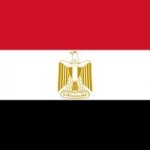
“Tahrir Square” participants in the recent events in Egypt expressed annoyance when some news organizations referred to them as ‘protests’ (or unrest, riots/rioting, revolt, uprising, intifadah …) rather than as a ‘revolution’. Some news organizations used ‘Lotus’ to refer to the Egyptian events. The following list of references to the events is from various Arabic sources:
Ahram
(Facebook Revolution) ثورة الفيس بووك
(January 25 Revolution)ثورة ٢٥ يناير
(Youth Revolution)ثورة الشباب
(January 25 Youth Revolution)ثورة شباب ٢٥ يناير
(Facebook”ean” Revolution)ثورة فيس بوكية
(Egypt’s Revolution)ثورة مصر
Masri Alyom
(Youth Revolution)ثورة الشباب
(Anger Revolution)ثورة الغضب
(25 January Martyrs’ Revolution)ثورة الشهداء ٢٥ يناير
al-Shruruq
(Dignity Revolution)ثورة الكرامة
(Egyptian Citizens’ Revolution)ثورة المواطنين المصريين
al-Jazeera
(Egypt’s Revolution)ثورة مصر
(Egyptian’s Revolution)ثورة المصريين
(Youth’s Revolution)ثورة الشباب
(Egyptian People’s Revolution)ثورة الشعب المصري
al-Sharq Al-Awsat
(Youth’s Revolution)ثورة الشباب
(Revolution of the Young)ثورة شبابية
(Egypt’s Revolution)ثورة مصر
(Lotus Revolution)ثورة اللوتس
al-Nahar
(Egypt’s Revolution)ثورة مصر
************
BBC Arabic
(Revolution with a laugh) الثورة الضاحكة
A short documentary: حس الفكاهة في الثورة المصرية
*************
CHECK Also:
*Saad Eddin Ibrahim: Mubarak’s Interests Are Not America’s – Wall Street Journal Online (Feb 8, 2011) … But the children of the Lotus Revolution, with the help of Twitter and Facebook, have revealed the pharaoh’s nakedness to the world … [Mr. Ibrahim, an Egyptian democracy advocate and sociologist, is currently a visiting professor at Drew University. From 2000-2003 he was Egypt’s best-known political prisoner.]
********
*****
(CBSNews)
Complete Coverage: Anger in the Arab World
****************
FOREIGN POLICY BLOG, December 5, 2011
According to Twitter, the top hashtag on the microblogging site was not #justinbieber or even Charlie Sheen’s bizarre, mid-meltdown reference to #tigerblood (second place) but #egypt, which users used to categorize tweets related to Egypt’s revolution. #jan25 — a reference to the start of the Egyptian uprising — was the eighth-most-popular hashtag, while Cairo and Egypt were the two most-referenced cities and countries and Hosni Mubarak’s resignation was the most-discussed world news event (besting the raid that killed Osama bin Laden, mind you).
In 2011, #egypt, #jan25, and #japan (used during the country’s earthquake and tsunami in March) all appeared among the top eight hashtags. Last year, by contrast, no news event appeared in the top eight.
The year-end results may also speak to the outsized role Twitter played in Egypt relative to other Arab Spring countries (and, perhaps, the outsized international interest in the Egyptian revolution relative to other uprisings). The Guardian‘s Peter Beaumont writes that Egypt had “a far more mature and extensive social media environment” before its uprising than Tunisia did before its revolution, and the Egyptian protests went on to forge microblogging celebrities like @Ghonim and @Sandmonkey. A survey by the Dubai School of Government in March estimated that Egypt had the largest number of active Twitter users in absolute terms of any Arab Spring country, though over half were concentrated in Cairo. While Mubarak blocked the Internet for a spell as his government wobbled (Google worked with Twitter to enable Egyptians to tweet with the #egypt hashtag via voicemail).
A study by the Project on Information Technology and Political Islam in September found that in the week before Mubarak stepped down, the number of tweets in Egypt and around the world about the political developments in the country jumped from 2,300 a day to a staggering 230,000 a day.
***






